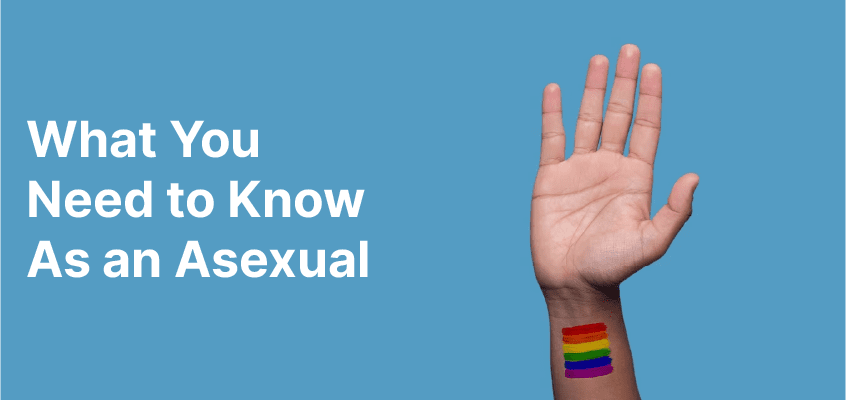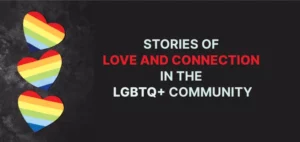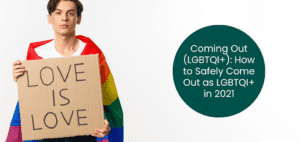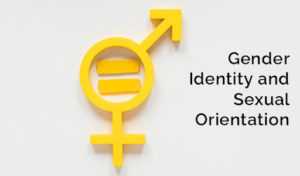Introduction
An asexual is someone who does not experience sexual attraction. It doesn’t mean that they don’t desire intimacy or close relationships; it’s just that they don’t feel the need to have sexual relations. Please read this blog post to learn about Asexuality and how it affects relationships.
What is Asexuality
Asexuality is a sexual orientation characterised by a lack of sexual attraction to others. Asexual people can have romantic relationships and be physically affectionate with their partners but do not feel sexual desire or arousal [1]. For some people, being asexual is a conscious choice. However, for some people, some form of sexual trauma can also trigger asexuality [2]. These people often prefer to focus on other aspects of their relationships. For others, being asexual is a mindset and is an integral part of their lives. Different people can experience Asexuality in various ways; therefore, it is an umbrella term for several sexual orientations. For example, demisexuals can experience sexual attraction only when they feel they have a deep emotional connection with the other person. The bottom line is there is no one way of being asexual, or there is no right or wrong way of being an asexual. People can experience Asexuality in several different ways.
What should you do if you have asexuality?
There is no one right way to be in a relationship, and that applies to asexuals as well. Here are some tips for staying healthy and happy whether you’re in an asexual or mixed-orientation relationship:
-
Communicate, communicate, communicate
Communication is essential in any relationship, but it’s especially crucial when one or both partners are asexual. Discuss your needs and boundaries early on and check in on each other periodically to ensure things are still working for both of you.
-
Be honest about your attraction (or lack of it)
Asexuality can be confusing for both parties in a relationship. It’s okay not to be confident, and it’s okay to change your mind. Be honest with your partner if you’re unsure how you feel or if your feelings change over time.
-
Don’t assume that sex is the be-all-end-all
There are many ways to show affection and intimacy in a relationship, not all involving sex. Find ways that work for you and your partner, and don’t worry about what other people might think.
-
Seek out other asexuals
Since Asexuality is still not widely accepted, it can be helpful to seek out other asexuals for support and understanding. Several online communities and forums can be great resources.
-
Seek support if you need it
If you’re struggling to navigate your Asexuality within your relationship, there are many online resources to help. Talk to a therapist and read books and articles about Asexuality to understand it better.
How to know if you have asexuality
There is no one way to be asexual and no standard set of experiences that all asexual people share. However, some signs may indicate that an individual is asexual. Here are three such characters:
-
A lack of interest in sex and romantic relationships
If you’re not interested in sex and romantic relationships, it could signify that you’re asexual. It’s possible to be asexual and still have a romantic relationship, although many asexual people don’t feel the need to be in one [3].
-
A low or nonexistent sex drive
Asexuality is not a disorder; there’s nothing wrong with being asexual. If you have a low or nonexistent sex drive, it could be another sign that you’re asexual. However, if you’re unhappy with your sex life or lack thereof, you must talk to a doctor or therapist to see what you can do about it.
-
A lack of interest in pornography and masturbation
If you’re not interested in pornography and masturbation, it could signify you’re asexual. It’s possible to be asexual and still enjoy pornography and masturbation, but many asexual people don’t feel the need to engage in these activities.
What impact can Asexuality have on your relationship?
Being an asexual can impact your relationships in different ways. For example, an asexual may have a lower sex drive than their partner or may not be interested in sex at all, and this can be difficult for some partners to understand and accept. However, being asexual does not mean you cannot have a happy and fulfilling relationship. Many asexual people enjoy solid and healthy relationships with their partners, and the key is finding a partner who understands and supports your Asexuality. If you are an asexual in a relationship with someone who is not asexual, it is essential to communicate your needs and boundaries. Sex should never be a requirement in a connection, and you should never feel pressured into being intimate with another person.
Conclusion
Relationships take time to develop and become strong regardless of sexual orientation. If you’re feeling pressured to perform sexually, remember that you can always opt to leave the relationship and protect your mental well-being. Asexuality is a perfectly normal sexual orientation that is still not widely understood. Hence, asexuals need to have an open and honest conversation with their partners about how to make the relationship work. It will help ensure everyone is on the same page and avoid misunderstandings. If you are asexual, know there is nothing wrong with you, and you can have a happy and fulfilling relationship.
References
- Asexuality: What it means to be asexual (no date) Medical News Today. MediLexicon International. Available at: https://www.medicalnewstoday.com/articles/327272 (Accessed: February 22, 2023).
- Asexuality, attraction, and romantic orientation (2021) L.G.B.T.Q. Center. Available at: https://lgbtq.unc.edu/resources/exploring-identities/asexuality-attraction-and-romantic-orientation/ (Accessed: February 22, 2023).
- K.P.; P.M.C.F. (no date) The co-occurrence of Asexuality and self-reported post-traumatic stress disorder diagnosis and sexual trauma within the past 12 months among U.S. college students, Archives of sexual behaviour. U.S. National Library of Medicine. Available at: https://pubmed.ncbi.nlm.nih.gov/29464451/ (Accessed: February 22, 2023).





